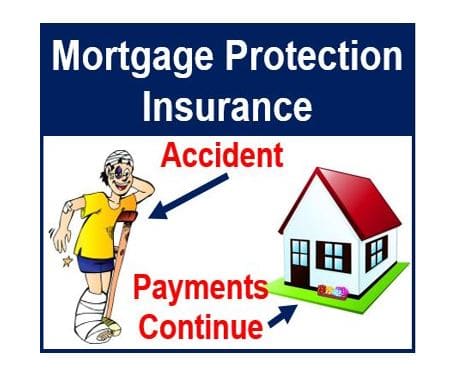Numerous homeowners are confused regarding the difference in between PMI (exclusive mortgage insurance coverage) as well as home loan defense insurance coverage. This date is when the financing is scheduled to get to 78% of the original evaluated worth or sales price is gotten to, whichever is much less, based upon the original amortization schedule for fixed-rate car loans and the present amortization schedule for adjustable-rate mortgages. Once your equity rises above 20 percent, either with paying for your mortgage or recognition, you may be eligible to quit paying PMI The primary step is to call your loan provider and also ask exactly how you can cancel your private home loan insurance coverage.
 Personal mortgage insurance coverage, or PMI, is normally required with most standard (non federal government backed) home mortgage programs when the down payment or equity setting is much less than 20% of the residential property worth. The benefit of LPMI is that the overall regular Primary Residential Mortgage monthly home loan payment is typically less than a similar funding with BPMI, yet due to the fact that it’s developed into the rates of interest, a debtor can’t remove it when the equity setting gets to 20% without refinancing.
Personal mortgage insurance coverage, or PMI, is normally required with most standard (non federal government backed) home mortgage programs when the down payment or equity setting is much less than 20% of the residential property worth. The benefit of LPMI is that the overall regular Primary Residential Mortgage monthly home loan payment is typically less than a similar funding with BPMI, yet due to the fact that it’s developed into the rates of interest, a debtor can’t remove it when the equity setting gets to 20% without refinancing.
Yes, personal home loan insurance policy provides no defense for the borrower. You do not select the home loan insurance provider and also you can’t negotiate the premiums. The one that everyone grumbles around Spokeo is exclusive mortgage insurance coverage (PMI). LPMI is normally an attribute of fundings that declare not to call for Mortgage Insurance policy for high LTV finances.
Simply put, when buying or refinancing a residence with a standard home mortgage, if the loan-to-value (LTV) is above 80% (or equivalently, the equity position is much less than 20%), the customer will likely be needed to carry private home mortgage insurance. BPMI allows debtors to obtain a home loan without needing to provide 20% down payment, by covering the lending institution for the added threat of a high loan-to-value (LTV) home mortgage.
Most individuals pay PMI in 12 regular monthly installations as component of the mortgage repayment. Home owners with private home loan insurance policy have to pay a large premium and the insurance policy does not even cover them. The Federal Real Estate Administration (FHA) costs for home mortgage Security First Financial insurance policy too. Several borrowers obtain exclusive home mortgage insurance coverage due to the fact that their lending institution requires it. That’s due to the fact that the consumer is taking down less than 20 percent of the prices as a deposit The much less a debtor puts down, the greater the risk to the lending institution.
It appears unAmerican, but that’s what happens when you get a home loan that exceeds 80 percent loan-to-value (LTV). Customers erroneously think that personal mortgage insurance makes them unique, but there are no private solutions offered with this type of insurance policy. Not just do you pay an in advance premium for home mortgage insurance coverage, yet you pay a regular monthly costs, together with your principal, rate of interest, insurance for property coverage, as well as tax obligations.
